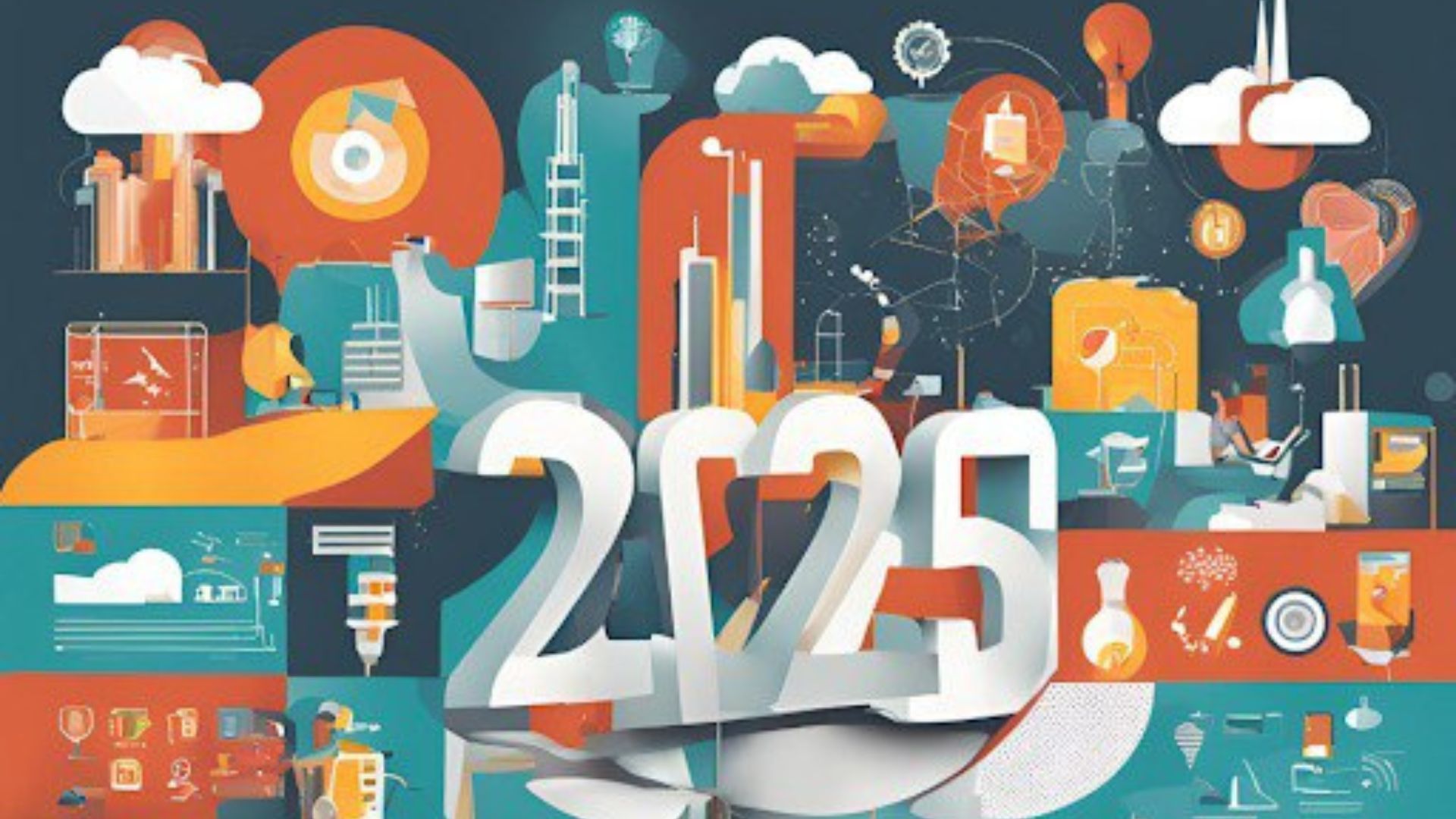
Blockchain technology has made massive strides in innovation, value, adoption, and regulation over the past decade, beating every other industry in most categories to become the fastest-growing industry in the world. It is one of the most transformative innovations of the 21st century, revolutionizing industries with its ability to ensure transparency, security, and decentralization.
Nonetheless, according to critics, the technology is yet to be proven to solve real-world solutions despite the innovations made in industries such as healthcare, real estate, supply chain management and governance. This may ring true. Despite hundreds of millions of people across the world having used the technology, many still use it for speculation – buying up cryptocurrencies with the hope of becoming instant millionaires in the near future.
This article aims to disprove the logic that blockchain technology is only used for speculation purposes. We delve deeper into the utility and rapid innovations in the space, showing you, the reader, how the technology is pushing boundaries beyond traditional applications like cryptocurrencies. The article further discusses the top emerging blockchain trends that will revolutionize technology in 2025, mentioning some of the projects leading this innovation journey.
Top Innovative Trends Taking Shape In Blockchain Technology
As stated, blockchain technology has been at the forefront of revolutionary technologies in the 21st century. Notwithstanding, the industry itself is witnessing a revolutionary change, with new innovations popping up in the space every couple of months.
One of the leading innovations in the space is the rise of interoperability and cross-chain solutions. Over the years, blockchain innovation has suffered from connectivity across networks, with each network siloed in its ecosystem. This has led to liquidity fragmentation, inefficient data communication, and reduced innovation across blockchain ecosystems. As the year turns, interoperability will be a key factor in enabling seamless data exchange and asset transfers across networks. In addition, building efficient cross-chain networks will ensure a robust, interconnected blockchain ecosystem, which is key to enhancing scalability, innovation, and efficiency in a growing blockchain universe.
Secondly, the blockchain ecosystem is also witnessing rapid changes in the field of decentralized finance (DeFi), as communities build more scalable and user-friendly platforms. In 2024, DeFi has evolved from simplistic transactions such as borrowing, lending and staking to more complex financial instruments such as restaking, tokenized real-world assets and insurance. The new DeFi 2.0 has the potential to provide even greater financial inclusion to the underbanked and unbanked, as it offers a more secure, accessible and user-friendly experience.
Finally, blockchain is slowly amalgamating itself with futuristic technologies such as artificial intelligence, machine learning and big data to push forward the next generation of innovative products. Merging into these futuristic technologies allows blockchain platforms to be intelligent, adaptive and highly secure. This integration creates solutions capable of analyzing massive datasets, automating processes, and even self-learning.
The Top Blockchain Products To Look Out For In 2025
The list above is in no way exhaustive. Several advancements in blockchain are currently being made, including eco-friendly innovations, privacy-enhancing technologies, decentralized governance platforms, enterprise blockchain solutions, staking platforms and more.
While several projects could have made it to the list, the following are the projects that we believe will set the trend for blockchain innovation in 2025. From time-based frameworks to decentralized data networks and efficiency-driven consensus mechanisms, the list discusses our top blockchain picks for 2025.
-
Analog One
Interoperability remains a key challenge for developers and users across the blockchain realm. Analog, a suite of omni-chain interoperability protocols that simplifies access to Web3 data and removes barriers to cross-chain communication, aims to solve these challenges. Via its Timechain, Analog GMP, and Analog Watch, the platform allows developers to build their DApps on any chain, from Ethereum to Polkadot and beyond.
Analog revolves around the Timechain, a sovereign blockchain ecosystem that serves as a ledger for all its activities—essentially acting as an Accountability Layer. The network pioneered the Nominated Proof-of-Stake (NPoS) consensus mechanism to ensure high levels of security and that all network activities are transparent and verifiable. The Anagog GMP allows developers to move data and value across chains with unparalleled decentralization, security, and cost efficiency.
-
Chrono.tech
While blockchain utility has majorly focused on investment opportunities, one company is changing this by solving employment challenges globally. Australian-based blockchain company Chrono.tech is unlocking a new world of employment opportunities for anyone with an internet connection globally. The company focuses on human resource solutions for enterprises and businesses worldwide, allowing them to source talent and pay their employees promptly and fairly.
Chrono’s main goal is to minimize and eliminate the bottlenecks to recruitment and payment processes for both workers and employers. The platform has four major platforms to ensure increased efficiency in global employment, namely LaborX (a global recruitment platform that connects individuals with work opportunities and enables them to get paid in crypto), TimeX (a hybrid exchange that offers users faster, secure, and cost-effective transactions, as well as, protection against front-running and illegal activities), PaymentX (an automated cryptocurrency payroll solution for enterprises), and AUDT (a stablecoin backed by Australian dollars in a 1:1 ratio).
-
Fetch.ai
Artificial intelligence is here with us and blockchain companies are increasingly merging the technology into their products. Fetch.ai is one such company that helps developers create AI platforms and services on a blockchain. The platform allows anyone to build and deploy AI services such as negotiators and agents at scale, anytime and at their convenience. The decentralized AI-powered platform provides users with autonomous machine-to-machine transactions and services, impacting several industries such as supply chain management, data interoperability, and more.
In addition, Fetch AI allows users to monetize their unique AI agents, AI apps and services. Users can also join the platform’s ‘Agentverse’ and carry out the effectiveness of the AI Agents’ semantic descriptors and get analytical insights to improve their discoverability on their platform.
-
Band Protocol
The emergence of oracles in the blockchain space improved the space immensely, helping networks (which inherently rely on internal data) to bridge external data onto the blockchain. This helped supply blockchains with verified, off-chain data, empowering smart contracts to interact dynamically with the outside world. Chainlink pioneered the development of oracles within the blockchain ecosystem but recently several platforms are rising to challenge it – primarily Band Protocol.
Band Protocol is a cross-chain data oracle platform that aggregates and connects real-world data and APIs to smart contracts. The platform is rising as a worthy competitor to challenge the dominance of Chainlick in the oracle space with its innovative cross-chain data oracle feeds. The platform leverages the Cosmos SDK and its own blockchain, BandChain, to offer a customizable, flexible and scalable oracle to multiple blockchains. This could lead to the development of complex DApps that share data, which leads to enhanced innovation in the wider blockchain space.
-
Energy Web
Finally, 2025 could be the year that Web 3 projects finally champion the creation of energy-efficient and sustainable products. Platforms such as Energy Web are leveraging blockchain technology to help global companies to identify, transform, and validate specific business processes that make them more sustainable.
As the calls to make businesses “greener”, platforms such as Energy Web are integrating blockchain to make this a reality. The company allows companies to utilize its native currency, $EWT, to configure, launch, and maintain distributed computing networks that ingest data from external sources, execute custom workflows, and vote on results in order to establish consensus on how to make their business more environmental friendly.
In addition, the blockchain is designed to decarbonize the energy sector by allowing companies to conduct peer-to-peer trades on carbon credits to accelerate the companies’ climate goals.
Conclusion
In conclusion, the rapidly evolving nature of blockchain technology is expected to continue its trend in 2025, with new innovations set to be built for the betterment of the society. These changes will not only redefine the possibilities of blockchain technology but also shape the future of industries across the globe.
From AI and decentralized data networks to interoperability and gree energy, blockchain will stand at the forefront of this wave of innovation in technology. It is an exciting time to be a part of this space, and we can’t wait to see what the future holds.
Disclaimer: This article is provided for informational purposes only. It is not offered or intended to be used as legal, tax, investment, financial, or other advice.

























+ There are no comments
Add yours